Eco-Friendly Activewear Brings New Meaning to Sweat Equity

It used to be that what was good for the planet wasn’t necessarily good to exercise in. But thanks to technological breakthroughs and big-hearted companies, there is now apparel and gear that will stand up to your toughest workout but be gentle on our planet. From using sustainable fabrics to eco-friendly practices, these brands—big and small—are making a difference.
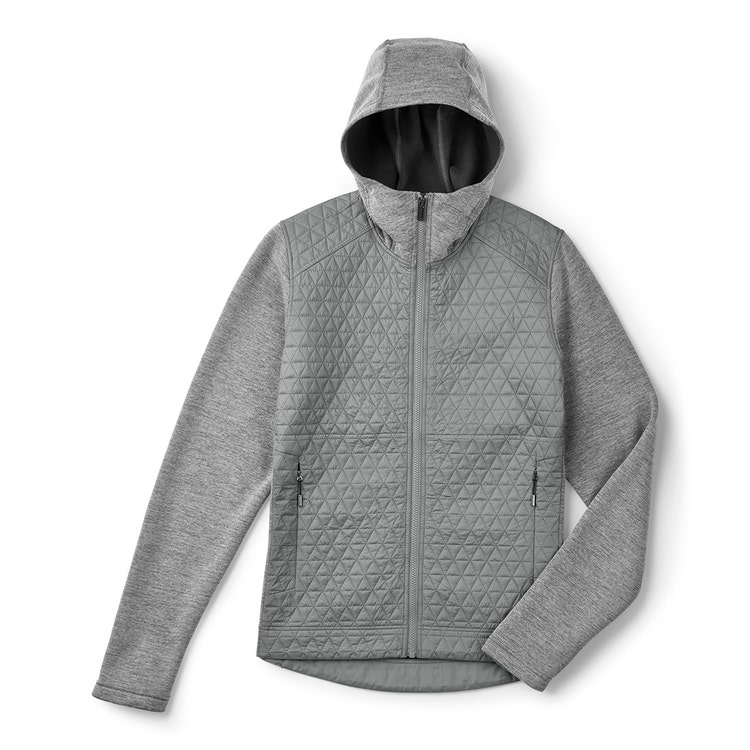
Nau, nau.com
Nau—which is pronounced “now”—comes from the traditional Maori greeting, “Nau mai! Haere mai!,” which means, “Welcome! Come in!” It’s a fitting name for the Portland, Oregon–based men’s and women’s apparel and accessories brand that was launched in 2007 as a way to create a new type of business, one that was designed to be performance-driven, sustainable and attractive.
“Founded on the belief that a business can be a force for greater good, sustainability has been the core of the brand’s vision since Nau’s beginnings,” says Courtney Samulik, Nau’s materials and sustainability manager. “We make better products that last longer and leave a smaller footprint, combining technical fabrics such as organic cotton, recycled polyester, PFC-free DWR and recycled down with a modern design yielding high-quality, timeless pieces. But our ultimate goal is the same as it was in the beginning—for our design to serve a better life beyond the purchase. We donate 2 percent of our sales to organizations that support humanitarian and environmental causes, share our ideas and ideals with other brands looking to do the same, and serve as leaders in our industry and community when it comes to living a sustainable lifestyle.”
Men’s Off the Grid Hoody, $225
Lolë, lolewomen.com
Every single piece in the Lolë collection is made with four pillars in mind: versatility, functionality, femininity and comfort, with the philosophy of promoting intelligent consumption.
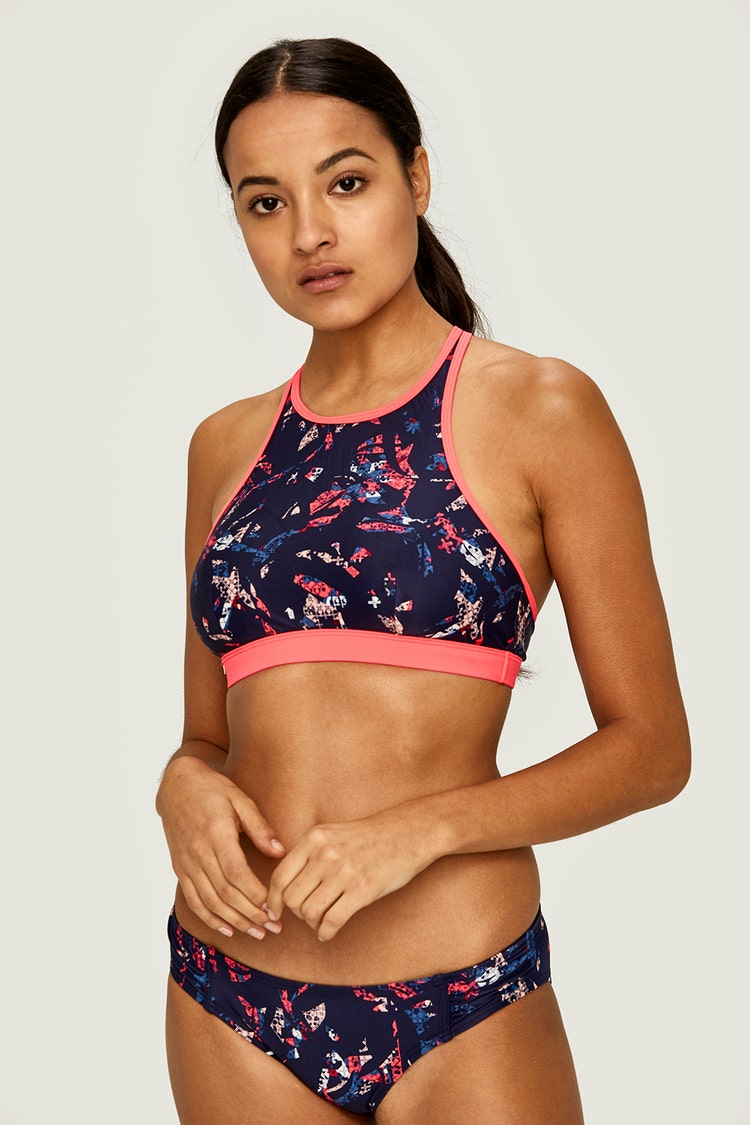
“Born in Montreal, Lolë creates authentic, active apparel for every day, every season,” says marketing director Danielle Hinan. “Beyond fashion, we are a lifestyle, hosting worldwide events and local giving within communities. Lolë is a driver of the well-being movement.” Lolë’s Vita fabric is made of 100 percent regenerated nylon fiber that comes from fishnets and other post-consumer waste. But its women’s apparel and accessories are also good for the soul. “We host local wellness meet-ups at our boutique locations each week, and we have an annual clothing drive,” Hinan says.
“Every fall, Lolë sponsors the Yellow Label jacket drive that gives new life to gently worn coats and jackets while helping underprivileged people.” The female-run, female-led, female-designed brand also hosts the Lolë White Tour, a series of yoga events in cities across the globe.
Abel Top, $55, and Caribbean Bottom, $35
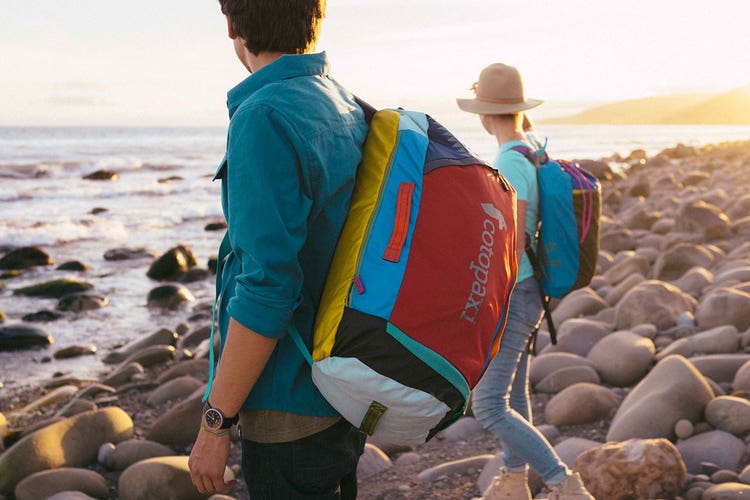
Cotopaxi, cotopaxi.com
Davis Smith, the co-founder and CEO of Cotopaxi, believes we can’t wait for nonprofits or the government to push sustainability—it’s up to businesses. “Before we sold a single product, our founding team identified three core values that would shape our culture, behavior and ultimately determine the outcomes in our business,” Smith says.
“Those three core values were people, adventure and innovation. We’ve tried hard to incorporate those into every aspect of our business, from the way we use our supply chain to support communities and people living in poverty to the way we use our profits to support global poverty alleviation. Our mission is to inspire adventure and move people to do good.” Made with repurposed fabric, buckles, thread and zippers, Cotopaxi prioritizes fair wages, high-quality working conditions and social programs for its employees. “Part of giving back for us means finding ways to support our local community,” Smith says. “Anyone who purchases product from us receives a handwritten thank-you card written by a refugee who has been recently resettled here in Salt Lake City, where we’re based. They write the cards in their native language, as they’re still learning English. This is oftentimes their first job, and we’ve partnered with the International Rescue Committee to offer job training and other skills to refugees in our card-writing program.”
Luzon Del Día, $49.95
Miakoda, miakodanewyork.com
“Sustainability is important to us because we can’t imagine how our world is going to continue to exist if we continue to treat the planet the way we are treating it,” says Julia Ahrens, co-owner and designer of Miakoda. “Sustainability by definition means doing something that can be maintained.
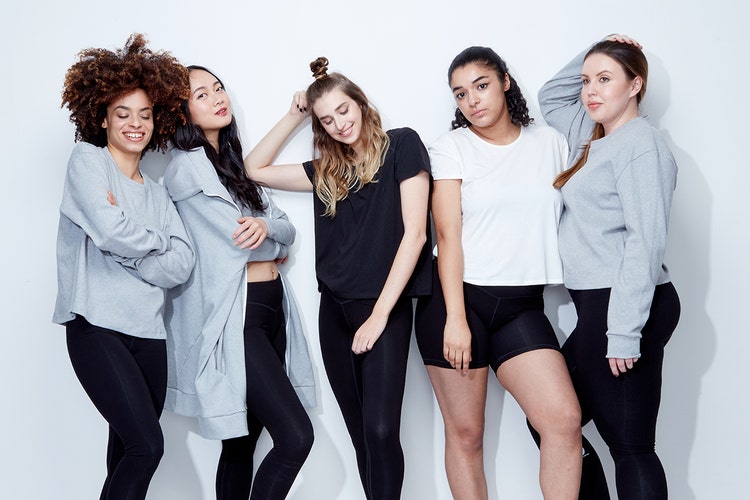
That seems pretty baseline to us!” As a vegan company, Miakoda exclusively uses sustainable plant-based fibers, including organic cotton, bamboo and soy. “Plants make incredible clothing—they are natural, breathable, soft and, when grown sustainably, really wonderful for the planet,” Ahrens says. Miakoda only partners with ethical factories and fabric suppliers to ensure that everything is fairly produced. “We don’t believe that cutting corners to cut down the number on a price tag is worth damaging and destroying humans’ lives,” Ahrens says. Even its packing materials are 100 percent recycled, from the shipping boxes to the garment bags to the labels. “Sustainability and ethics are not an end destination—it’s a journey,” she says. “It’s not about what you aren’t doing; it’s about what you are doing. And every conscious decision to shop or live sustainably and ethically makes a difference, no matter how small the decision is.”
Athletic Pant Collection, $72-$98
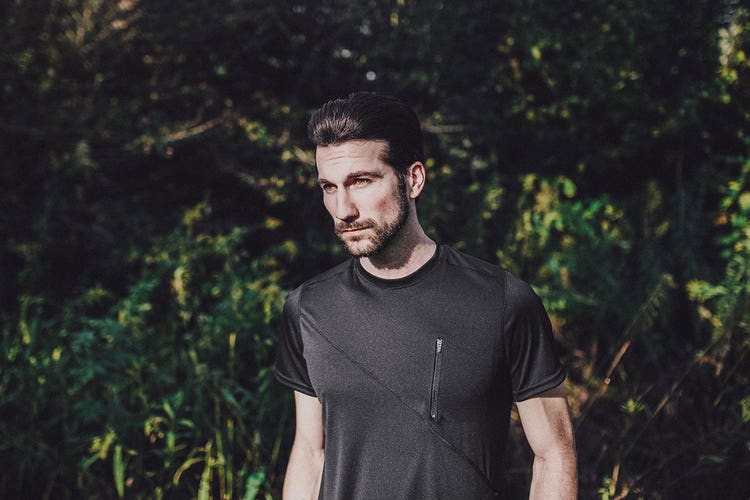
Fibre Athletics, fibreathletics.com
From a low-impact dying process to organic cottons to fair-trade production, doing good for the planet and its people is at the heart of everything behind Fibre Athletics. “When I was young, my father really emphasized to us respecting and appreciating the environment,” says founder and owner Steve Sullivan.
“That early influence was reinforced by my love of the outdoors and environmental restoration work I’ve done over the years. When researching materials and manufacturing options, learning about the negative impact the apparel industry has on the environment and communities was an early inspiration for determining the company’s values and commitment to transparency.” In addition to eco-consciously crafting every piece, with every purchase Fibre supports nonprofits like Mission 22, an organization dedicated to fighting veteran suicides; The Eden Projects, which employs local villagers to plant millions of trees in Madagascar, Ethiopia, Haiti and Nepal to restore forest and fight poverty; and Cara, a Chicago-based workforce development program that aims to end the cycle of homelessness and poverty.
Men’s Pursuit Top, $60
Yoga Design Lab, yogadesignlab.com
The group behind Yoga Design Lab is scattered around the world. “We’re a team of nomads; a lot of us live in developing nations where you see the effects of pollution,” says Michelle Hurley, director of operations, who is based in Ecuador.
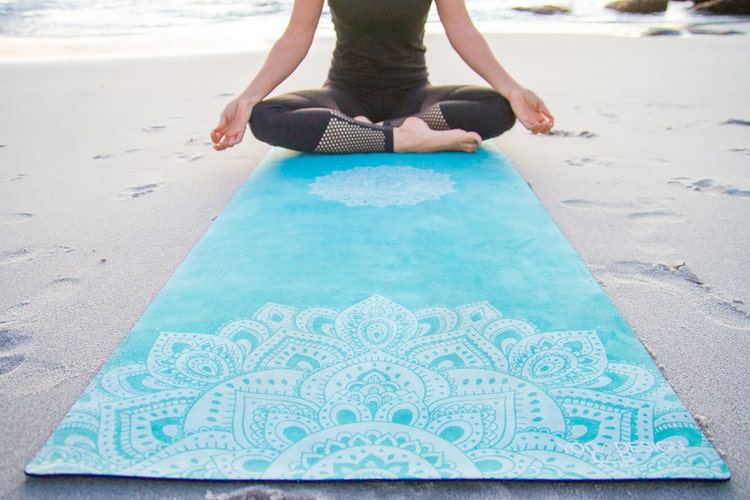
“For example, you can see how Bali is being destroyed by trash on the streets. It’s important to all of us to make the line as sustainable as we can.” That’s why the company’s yoga mats are made of 100 percent natural tree rubber and microfiber made of recycled plastic bottles and water-based inks. Soon, it will be launching hand and mat towels made from recycled plastic bottles, as well. “We are committed to greening the whole line more than we have,” Hurley says. “We want to draw more people to yoga by creating beautiful items to get them excited to be there. A lot of people started going more when they had beautiful mats—it made them feel like they knew what they were doing. We bring our values to the mat by making highly functioning, beautiful, sustainable products. You can have it all.”
Combo Mat in Mandala Turquoise, $68
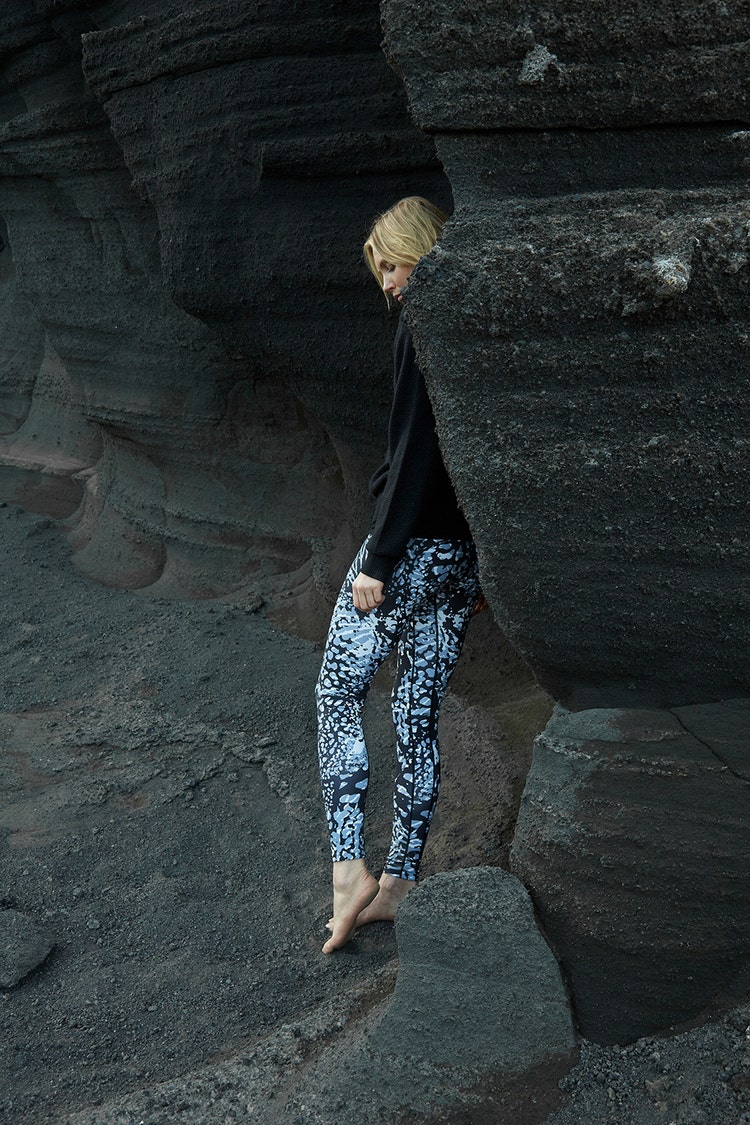
Vyayama, vyayama.com
“Vyayama” is the Sanskrit word for “to move,” so it’s fitting for a yoga lifestyle brand founded to deliver a chic alternative to synthetic yogawear that’s ethically produced using exclusively natural, sustainable fibers.
“As advocates for healthy living, we think it’s important as a new brand to take on this responsibility and offer clothing that is as healthy for you as the organic food you eat and the pure water you drink,” says founder Rachel Bauer. “It’s important that all aspects of our clothing align with the flow of a yogic lifestyle, but we don’t believe being mindful has to be separate from enjoying fashion. We are New Yorkers after all! We’ve designed all our pieces in print and in black to become an integral part of our fashion wardrobe.” Focused on high-performance botanically sourced fabrics, the collection is ethically produced in Europe and all styles are Oeko-Tex certified nontoxic.
Glacier Print Legging, $170
ShareHope, sharehope.com
ShareHope is all about the people who made its clothing. “Gone are the days when we knew the baker, butcher and tailor by their first name,” says Cynthia Petterson, CEO and co-founder of ShareHope.
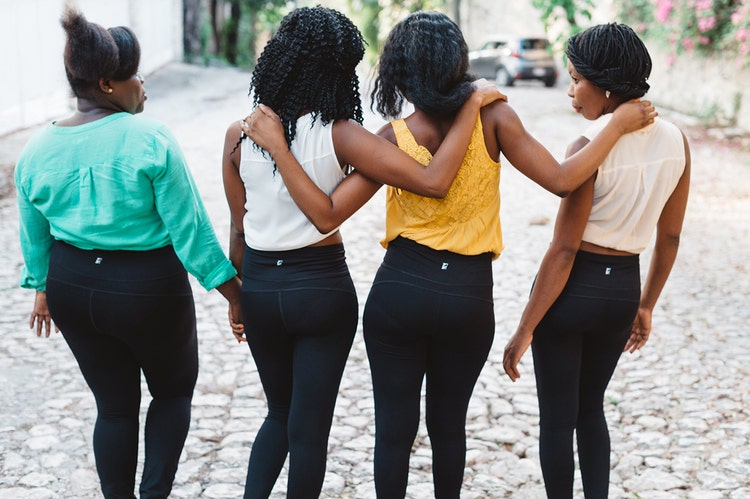
“But there is a growing movement of people who care about reconnecting with those workers and about putting a face back on what they wear. We want to bring as many people into that community as possible. We believe that knowing a little bit about the people making our clothing will help us each care just a little bit more about them, bridging the distance of the miles. This is why we put such an emphasis on the individual workers: We want to tell their stories and show that they are not so different from you and me.” When Petterson visited Haiti for the first time in 2008, she saw tired, hopeless street vendors on the road selling their goods. “I realized that these are just people who need jobs,” she recalls. “I knew that this was an industry that had the potential to employ thousands of people in a short period of time and provide them with what should be good and decent work.” ShareHope is made in Haiti, giving locals the opportunity to learn a trade, have access to health care and support their families. And it’s producing high-quality clothing that will last for years to come, cutting down on excess consumerism.
ShareHope Legging, $55
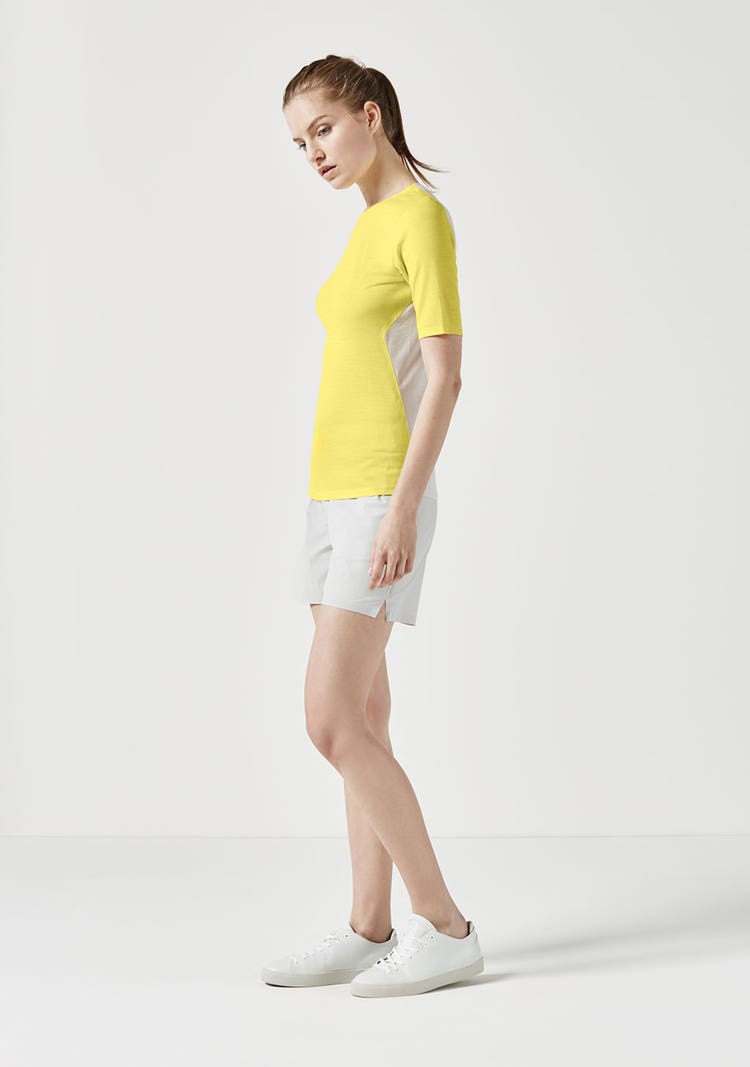
Aeance, aeance.com
“We created Aeance out of the strong belief that we as a society need to adjust our behavior toward a more sustainable lifestyle,” says co-founder Nadine-Isabelle Baier.
“As advocates for healthy living, we think it’s important as a new brand to take on this responsibility and offer clothing that is as healthy for you as the organic food you eat and the pure water you drink,” says founder Rachel Bauer. “It’s important that all aspects of our clothing align with the flow of a yogic lifestyle, but we don’t believe being mindful has to be separate from enjoying fashion. We are New Yorkers after all! We’ve designed all our pieces in print and in black to become an integral part of our fashion wardrobe.” Focused on high-performance botanically sourced fabrics, the collection is ethically produced in Europe and all styles are Oeko-Tex certified nontoxic.
Glacier Print Legging, $170
Manduka, manduka.com
Being kind to the earth has been Manduka’s mission for the last two decades. “Manduka has always been inspired and guided by a responsibility to reduce global consumption by making better products that last longer,” says creative director Jason Fontana.
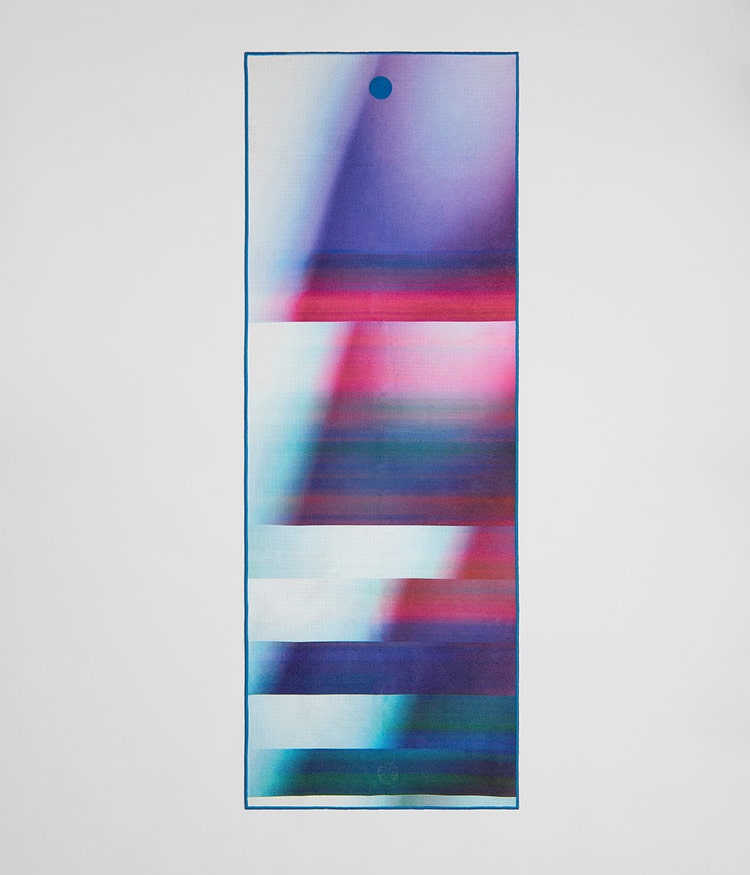
“Over 20 billion pounds of textiles end up in landfills each year; we knew when starting out that we did not want to increase that kind of waste. As a company, it’s impossible to leave zero environmental footprint, so we’ve committed to 100 percent transparency and clarity about the decisions we make and where we can improve.” The men’s and women’s yoga apparel and equipment company uses recycled materials, avoids harmful chemicals and never uses plastic bags for shipping. “Manduka relies on the feedback and support of the yoga community to continue to create innovative products and, in turn, supports yoga studios, teachers and students all over the world,” Fontana says.
Yogitoes Yoga Towel (Energy), $68
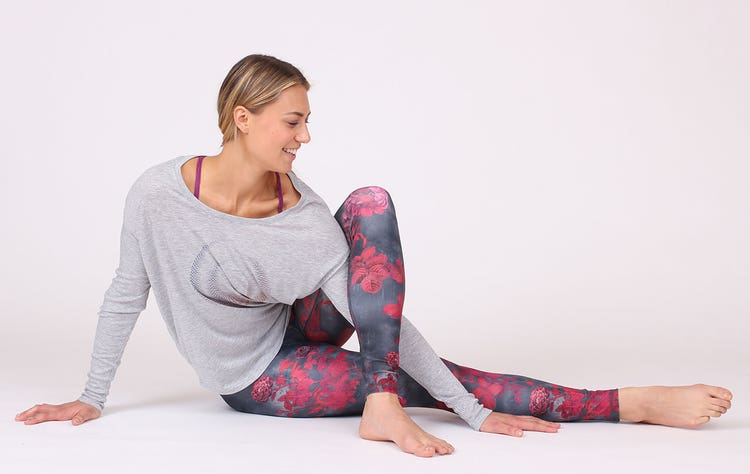
Anjali, anjaliclothing.com
“We want to live our lives with respect and in harmony with nature—in the way we eat, in what we purchase, and how we consume and generally exist in the world,” says Kristinn Sigridarson, co-founder of Anjali.
“We wanted our company to reflect that.” When Anjali was started in 2006, the aim was to have the smallest carbon footprint. The company’s cutting room is less than a mile from its New York City offices, and all its sewing is done within a 12-mile radius. All the printing is done dry via sublimation printing, so there are never chemical runoffs, and there’s no need for any additional chemical treatments. Recycled paper boxes are used for shipping, and Anjali is in the process of eliminating plastics by using biodegradable poly bags and paper shipping pouches. It uses sustainable fabrics whenever possible, including organic cottons, soy blends and bamboo blends, as well as poly/spandex derived from recycled discarded plastic bottles. “There is so much innovation going on in fabric sourcing these days that there really is no excuse to not be more sustainable,” Sigridarson says.
Galaxy Maxi Top,$49, and Ferocity Leggings Moon Rose,$69
Shift to Nature, shifttonature.com.au
“If we zoom out to seeing the effect of our collective whole on our busy little planet, thinking with sustainability in mind can bring us to valuing and appreciating our precious earth and each other enough to slow down on a larger scale,” says Sonja Baram, creative director of Shift to Nature, an eco-minded men’s, women’s and children’s clothing brand based in Australia.
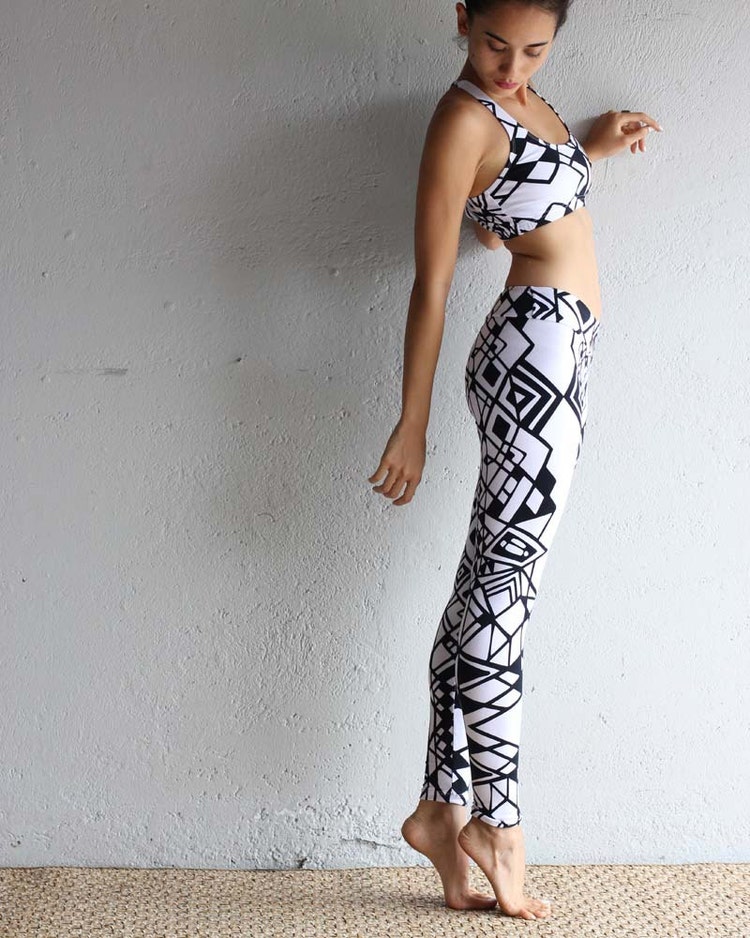
“Slowing down in this way brings forward intentions of respect and thinking about our future in a way that we care about it.” As a small ethical business, Baram chooses to grow Shift to Nature mindfully, using organic materials—no polyester or plastics—and ensuring a living wage is paid. Her goal is to be the opposite of fast fashion in every sense. “When I am thinking sustainably … I don’t need to be rushing around spending money and buying things that I won’t care about,” she says. “I am treating my life and the things I love as precious. I am more considerate of running a business that … hopefully lasts longer to adapt to what its customers wish for and to give time for better organic and sustainable products to be available. By doing this, I am listening to my clients rather than feeling pushed into costly distractions, such as social media campaigns, marketing and advertising.”
GeoTech Hot Yoga Bra, $24.32, and Hot GeoTech Eco Leggings, $60.80
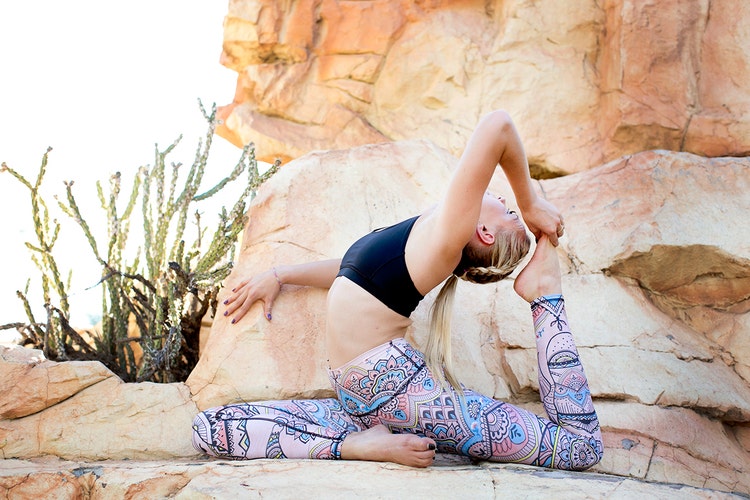
Yoga Democracy, yogademocracy.com
“I felt as someone who practices yoga that I wanted to buy products that more closely reflect the values of the practice,” says Natalie Oldroyd, founder of Yoga Democracy.
“Producing those products with a core set of values—sweatshop-free, eco-friendly and USA-made—fell in line with my own personal philosophy.” Yoga Democracy uses fabric made from recycled materials that have half the carbon footprint of standard synthetics. “For recycled poly, we are able to use a waterless process that does not expel any wastewater into the ecosystem,” Oldroyd says. “It’s also low energy use not requiring air emissions.” Additionally, Yoga Democracy uses a water-free process for its printed leggings, plus it is a member of 1% for the Planet and contributes 1 percent of all revenues to nonprofits. Last year, that benefitted the Sierra Club, the Hurricane Harvey Relief Fund administered by the American Red Cross and a local wildlife rehabilitation center.
Mystic Elephant Yoga Leggings, $75
JadeYoga, jadeyoga.com
As a former lawyer for the U.S. Environmental Protection Agency, Dean Jerrehian, president of JadeYoga, makes sustainability a primary part of its mission. JadeYoga’s mats are made with natural rubber, which is tapped—like maple syrup—from a rubber tree and made in the U.S. in compliance with stringent environmental laws.
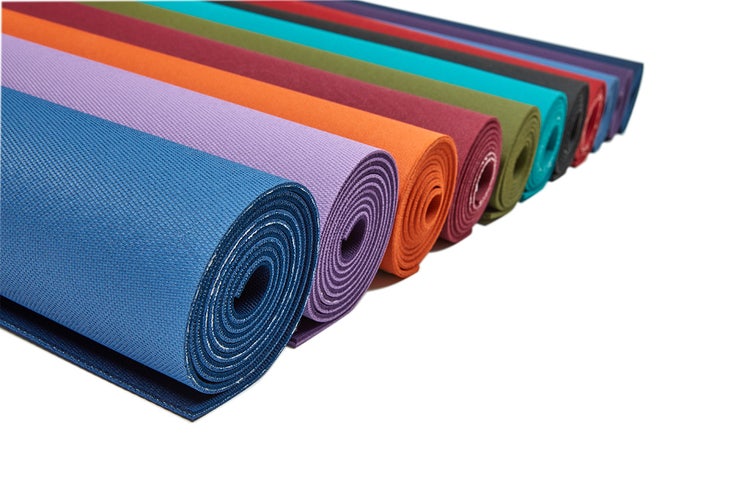
“When Jade first started in the yoga business, I was proud that we made an eco-friendly product in the U.S.,” Jerrehian says. “Then a yogini asked me, ‘What else are you doing?’ At first, I did not understand the question—wasn’t making a natural, nontoxic product out of a rapidly renewable resource pretty admirable? But she kept asking until I realized that we could—and should—do more for our customers, our community and our world. We decided to give back to the earth, and through our partnership with Trees for the Future, have planted a tree for every mat sold, with over 1,400,000 trees planted so far.” JadeYoga preserves 100 square feet of rain forest with every block sold and offsets 25 pounds of carbon emission with every strap sold. Additionally, JadeYoga is in the process of making its facility carbon neutral and hopes to help 100 yoga studios go carbon neutral this year.
Harmony Mat, $74.95 each
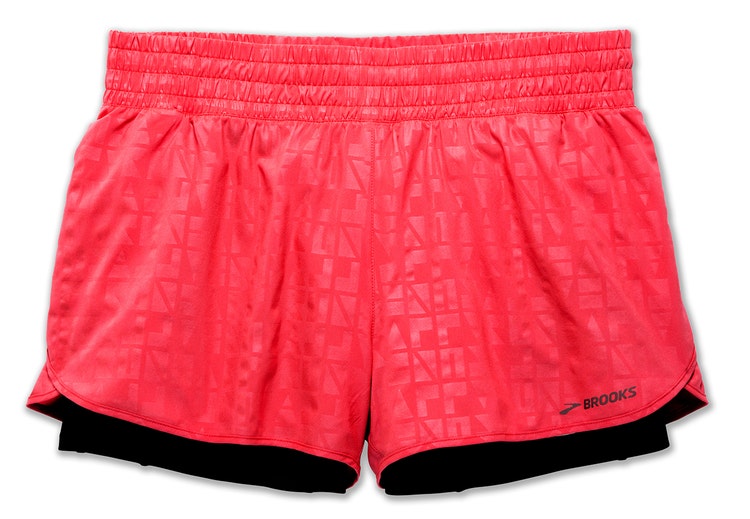
Brooks, brooksrunning.com
“At Brooks, we believe this planet is our playground,” says Michael Chinchar, social responsibility program manager. “More than 100 million people run outside, so it’s critical we care for the world we share. We give back with a focus on causes that get people moving.
We live, work and run as part of a global community, so as we create gear and operate our global business, we are mindful of ways to minimize our environmental and social impacts and own up to the areas where we can do better.” To reduce its footprint, Brooks designs its footwear to have the least amount of waste possible and uses sustainable materials such as recycled polyester and biodegradable midsoles. In 2014, it partnered with Bluesign to use fabrics with sustainable textile preparations and work with factories that meet high standards for the environment and their employees. In addition, through its Run B’Cause program, Brooks encourages local communities to run and exercise. “Through these programs, along with other grass-roots efforts, in 2016, we gave over $2.2 million of cash and in-kind donations—over double our efforts from 2015,” Chinchar says.
Patagonia, patagonia.com
Everything that Patagonia makes has the earth in mind. To reduce its footprint, Patagonia’s line is made with recycled materials using methods that do as little damage as possible.
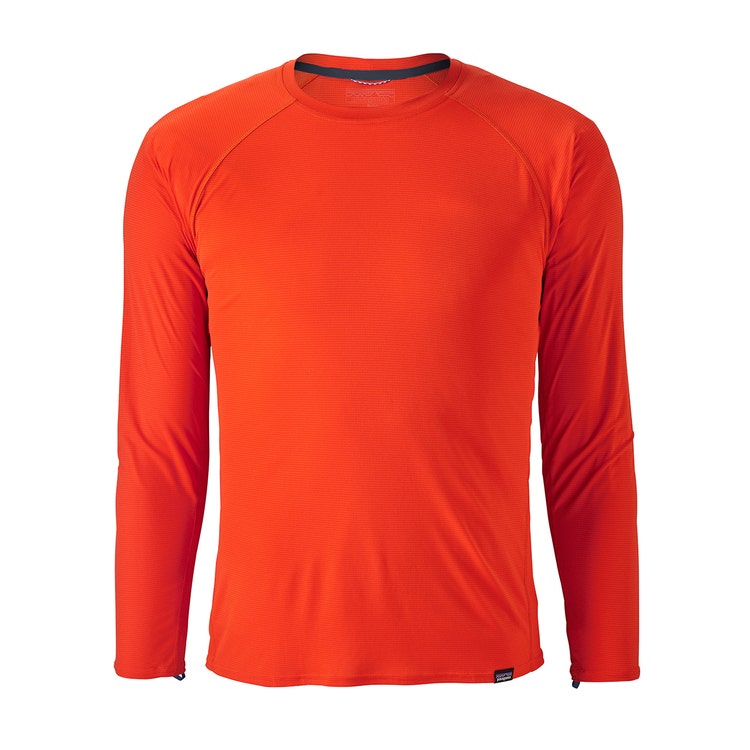
Throughout its supply chain, Patagonia ensures that its products are made under safe, legal, healthy and humane working conditions. Through Patagonia Action Works, it has worked with environmental grass-roots activists for nearly 40 years, encouraging people to get involved in their community. The brand pledges at least 1 percent of sales or 10 percent of pretax profits—whichever is higher—to nonprofit groups that are dedicated to protecting natural habitats, wilderness and biodiversity. And once Patagonia’s apparel has served its time, it works with Worn Wear to recycle old garments.
Men’s Capilene Lightweight Crew, $49
Photo credit: aleskrivec, Unsplash